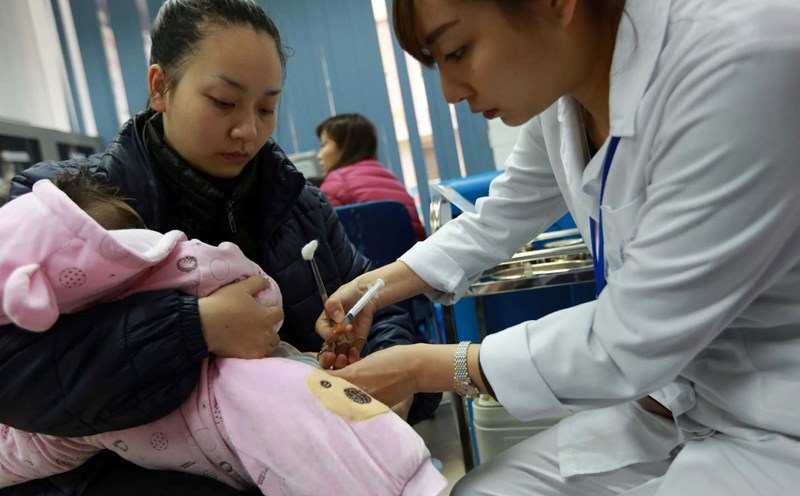Sharing about the development of the pharmaceutical industry in recent times, Mr. Vu Tuan Cuong - Director of the Department of Drug Administration (Ministry of Health) said: Up to now, the Vietnamese pharmaceutical industry has achieved some very basic results.
Ensuring the supply of quality drugs at reasonable prices to meet the needs of medical examination, treatment and disease prevention. Up to now, there are over 23,000 drugs with valid circulation registration certificates, ensuring adequate supply of drugs for medical examination and treatment needs.
The domestic pharmaceutical industry continues to have remarkable developments: Domestic drug production has expanded in scale and enhanced its role in the drug consumption market. There are 238 manufacturing plants that meet GMP-WHO standards, of which 19 have drug production lines that meet EU-GMP or equivalent.
Domestic drug production has covered 13/13 essential drug groups according to WHO classification, with over 800 active ingredients, producing many special technological dosage forms (long-acting drugs, freeze-dried injections, effervescent drugs, etc.), and specialized drugs (cardiovascular, diabetes, endocrine drugs, etc.).
Annual domestic production growth rate is from 12-15%; the number of production facilities increases from 167 (in 2016) to 238 (in 2023), the value of domestically produced drugs increases from more than 20% (in 2015) to nearly 50% of the value of drugs used, nearly 70% in terms of product quantity (in 2022).
Export value is about 280 million (2024), of which some products have been exported to high-demand markets such as the US, EU, Japan, Korea, etc.
Vietnam's pharmaceutical market is on the rise with its total estimated value increasing from about 2.7 billion USD in 2015 to 7 billion USD in 2022, forecast to reach more than 10 billion USD in 2026.
Domestically produced vaccines have basically met the expanded immunization program: Currently, Vietnam has produced 14 types of vaccines to prevent 10 diseases to serve the expanded immunization program.
Management of distribution and supply activities has achieved many positive results, becoming increasingly standardized, professional, and increasing people's access to drugs.
Clinical pharmacy activities have been institutionalized and achieved some initial results: The Ministry of Health has developed and submitted to the Government for promulgation Decree No. 131/2020/ND-CP dated November 2, 2020 regulating the organization and operation of clinical pharmacy in medical examination and treatment facilities. This is a solid legal corridor to promote clinical pharmacy activities.
Drug quality control is guaranteed: Drug quality is strictly and comprehensively managed at all stages from production, storage, circulation, distribution, wholesale and retail. The work of checking and monitoring the quality of drugs circulating on the market is carried out regularly and systematically from the central to local levels, thanks to which the rate of substandard drugs in recent years has been maintained at a low level of less than 1% of the total number of samples taken on the market.
Effective implementation of drug price management measures has helped the pharmaceutical market to stabilize over the years. The CPI index of the drug and medical service group is always low compared to the general CPI (2021: 0.2% (general CPI: 1.84%); 2022: 0.4 (general CPI: 3.15%); 2023: 1.45% (of which the medical service sector alone is 1.15%) (general CPI: 2.96%).
In particular, on November 21, 2024, at the 8th session, the 15th National Assembly passed the Law amending and supplementing a number of articles of the Law on Pharmacy, including 3 articles, Article 1 amending 50 articles, abolishing 02 points, 02 clauses and 01 article of the current Law on Pharmacy and adding 03 new articles; Article 2 on amending and supplementing Appendix No. 01 on the list of goods and services subject to price stabilization issued together with the Law on Prices No. 16/2023/QH15; Article 3 on the Implementation Provisions.
With the new points in the Law amending and supplementing a number of articles of the Law on Pharmacy, the existing shortcomings and inadequacies in state management of pharmacy will be fundamentally resolved, helping the pharmaceutical industry continue to develop strongly as well as ensuring the timely supply of quality, safe, effective and reasonably priced drugs.











